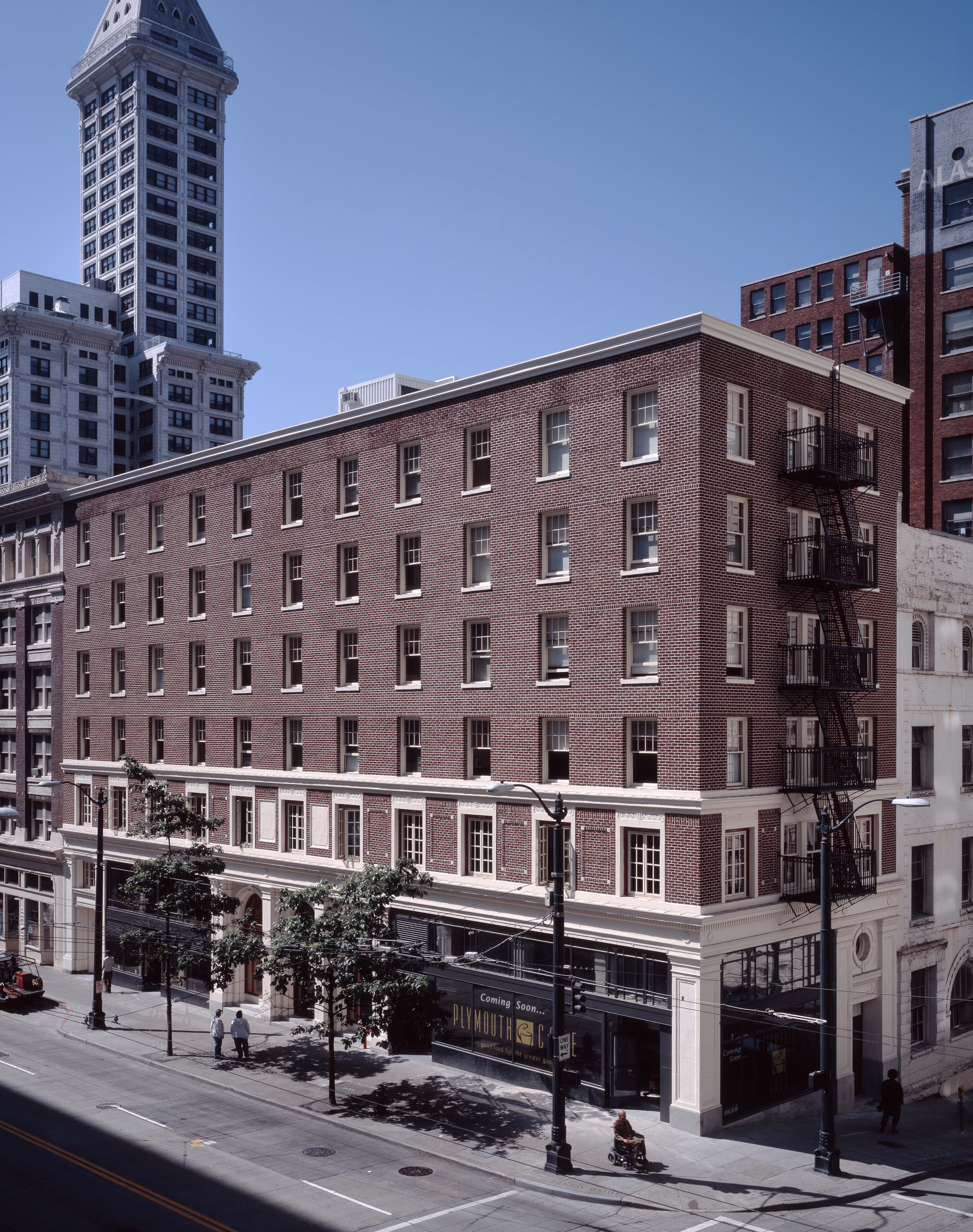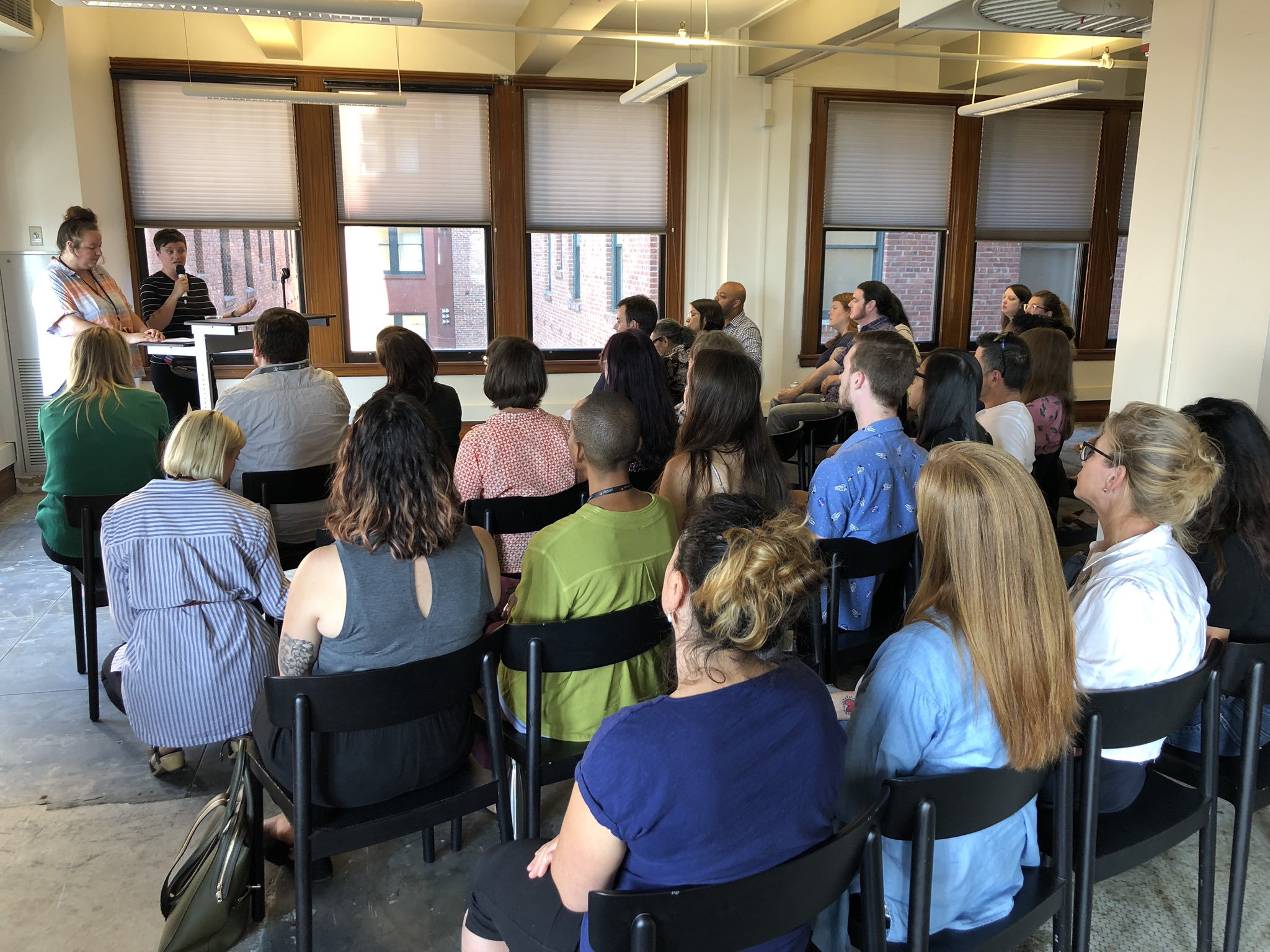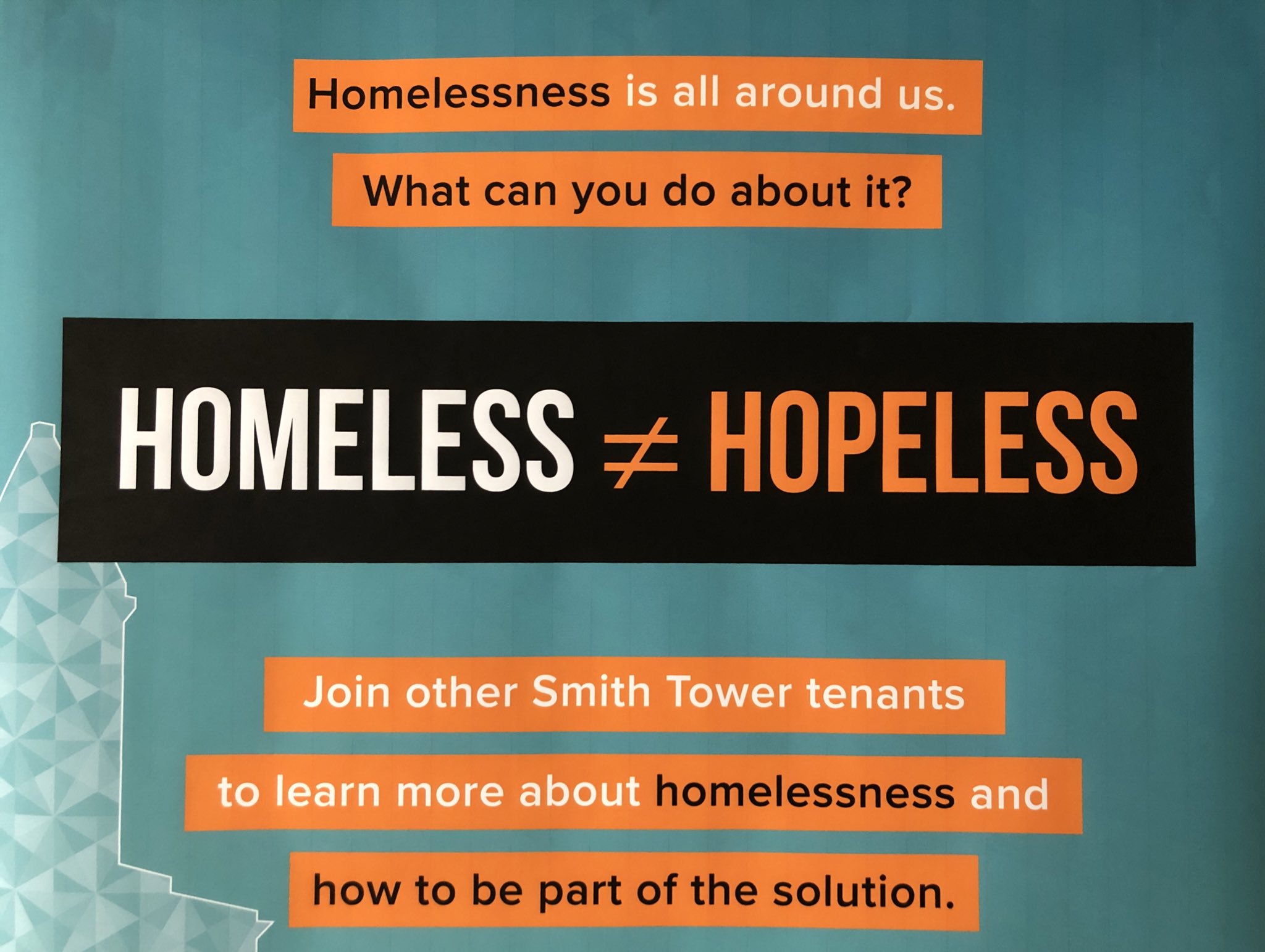By Liz Rapuzzi and Marilyn Mitchell
For many Smith Tower employees, it’s hard to go a day without thinking about homelessness. Each day, they pass neighbors without homes during their commutes through Pioneer Square. Because of that employee concern, Yesler/Projectline organized a panel earlier this month called Homeless not Hopeless, which we spoke at, alongside other nonprofits that also work to combat homelessness, like DESC and REACH.
We really enjoyed the opportunity to engage with Seattleites who want to make our city even better, because we believe that opportunities like this one create change. We wanted to share some of the takeaways from that panel here for people who weren’t in the room, beginning with some common beliefs about homelessness, and ending with its solution.

Plymouth’s historic St. Charles Apartments, with Smith Tower in the background.
Maybe you’ve heard the term “Freeattle.” It’s the concept that people experiencing homelessness “flock” to our region for the “free services” that we apparently give out in abundance. In actuality, 95% of people experiencing homelessness in King County were living in Washington at the time that they lost their housing, according to this year’s Point in Time Count. The word “Freattle” is often accompanied by a desire to keep certain people out.
But do we as a community want the power to decide who does and doesn’t deserve to remain here? If so, at what point would we consider a resident no longer eligible to live here? Who gets to make that decision, and why?
It’s true that we have seen a huge population boom in our city in recent years, because people across all economic situations are moving here for opportunities. To them, Seattle is a wonderful place to live and grow. That’s something we should feel proud of, and we should welcome them.

Liz and Marilyn presenting to a crowd during the Homeless Not Hopeless Panel.
Another commonly repeated belief is that people “want to be homeless.” We know that some people who are experiencing homelessness may state that as their truth. For a lot of homed people, that’s confusing and frustrating. But let’s be curious about a statement like that. What might have happened to somebody that makes the idea of being housed seem impossible or unsafe?
Homelessness is an imbalance, and where there is an imbalance there’s also hurt, as well as an opportunity for healing. By forming relationships with individuals and trying to understand their experiences, we can move away from judgement and towards community.
While homelessness is a complicated, multi-faceted issue, its primary cause is simple: a lack of affordable housing. Although great work is being done to create more, the simple numbers show that our housing market hasn’t kept up with our population—in Washington state, there are only 29 affordable units for every 100 units needed.

Poster used to promote the event. (Courtesy of Yesler.)
If we don’t address that disparity, we as a community will always have to rely on band-aid solutions. Instead, we need to talk about this issue as a systemic one, which must be addressed through proactive policies and community will. But that’s the good news: we already know what works for our community—safe, quality, and supportive housing, just like we state in Plymouth’s mission.
If you want to be part of that solution, keep educating yourself, advocate to local officials on the issues of homelessness and affordable housing, and be kind to members of our community who are experiencing homelessness. It’s going to take all of us to make a change, and we have to do it.